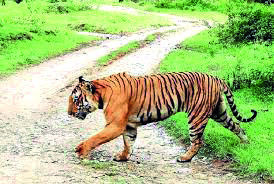Steps taken for conducting genetic profiling of tigers in state zoos

kolkata: The tigers in captivity in the zoos of West Bengal will now be effectively managed with the genetic profiling done by the Zoological Survey of India (ZSI) in collaboration with the West Bengal Zoo Authority (WBZA) . A recent study has identified five tigers based on individual genetic attributes that may be prioritised for breeding and animal exchange programmes too.
The WBZA had assigned the ZSI for conducting genetic profiling of tigers after the study proposed the best of best-breeding pairs with utilizing individual genetic potential.
ZSI investigated the genetic make-up of 15 tigers housed at five different captive facilities of Bengal that included 8 in Alipore Zoo, one in Padmaja Naidu Himalyan Zoo in Darjeeling , 3 in Bengal Safari Park at Siliguri, 2 in Sunderbans Wildlife Natural Park and 1 in Alipurduar mini zoo. Three females and two males that includes Payal, Krishna and Raja from Sunderbans and Raja and a tigress at Bengal Safari Park have been identified as the most potent and genetically vibrant in producing better progeny and hence can be prioritised in animal exchange programmes too.
"Several studies reported a negative correlation with the fitness of captive animals in comparison to wild animals and therefore, management of captive individuals and their successive translocations from captive to wild requires special management skills and expertise. Hence, to avoid the loss of genetic variation and its detrimental consequences, it is important to genetically evaluate the captive animals at least the threatened mammals before planning for exchange or translocation between zoos or from captivity to the wild," Dr. Mukesh Thakur, ZSI Scientist and lead author of the study said.
This is perhaps the first time when matchmaking of tigers has been done in India.
"Genetics driven interventions if adopted in conservation breeding projects may enhance the overall success by prioritizing breeding among genetically most competent individuals and delaying or completely diminishing the ill effects of inbreeding. Managing their mating/ breeding may insure the endangered species and their population may recover with assistance, " Dhriti Banerjee, Director, ZSI said.



